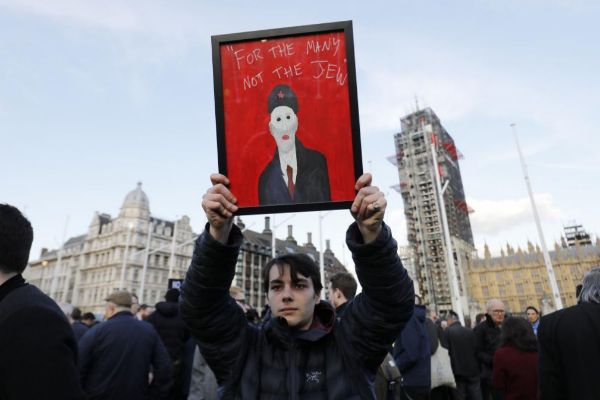- Keys: United Kingdom elections in figures
- Brexit.Cronology of a divorce
Rees-Mogg or "common sense"
The hopes of the British Prime Minister, Boris Johnson, to have a soft campaign start soon fell into a broken sack. One of his allies, the spokesman for the Conservative Party in the House of Commons Jacob Rees-Mogg, had to apologize for some controversial statements in which he suggested that the victims of the London Grenfell Tower fire could have used the "sense common "to ignore the instructions of the fire service and leave the burning building, in which 72 people died in 2017. Rees-Mogg has been criticized since then and would have received orders to keep a low profile for the rest of the campaign .
Accusations of anti-Semitism
In an unusual intervention in the political sphere, British rabbi Ephraim Mirvis strongly criticized the leader of the Labor Party, Jeremy Corbyn, for his inability to avoid the "poison" of anti-Semitism in the opposition party. "A new poison backed from above has taken root in the Labor Party leaving British Jews in a state of anxiety," Mirvis wrote at the end of November in a column published by The Times. The rabbi considered Corbyn "unfit" to govern and asked the British to vote "in conscience." The Labor leader is regularly accused of complacency towards some members of his party who have issued anti-Semitic comments.
The attack on the London bridge
On November 29, a man convicted of "terrorist crimes" on probation killed two people before being killed by police on the London Bridge. After the attack, Boris Johnson promised to review the inmate's freedom system and tighten the convictions for terrorism. The promise of the 'premier' led to criticism from the father of one of the victims who was working on a prisoner rehabilitation program and who accused Johnson of opportunism.
The interview Johnson doesn't dare
Johnson has been heavily criticized in the campaign for refusing, unlike other party leaders, to be interviewed by the incisive BBC presenter Andrew Neil . "We have been asking for a date, an hour, a place to conduct the interview for weeks. So far, there has been no response," said the journalist. In a televised monologue, Neil asked all the questions he would have asked the president: "Why on so many occasions, throughout his career as a journalist or as a politician, his critics, and even his closest allies, have stated his absolute distrust of the character? " The 'premier' defended himself against the accusations saying he has given more than 100 interviews during the campaign.
The picture of the boy in the hospital
The last controversy before the elections occurred three days ago, when the prime minister did not want to look at a photograph of a sick child, lying on the emergency floor of a Leeds hospital because of the lack of beds. Johnson did not even want to look at the mobile of the ITV reporter who was trying to interview him to show him the photo. After several refusals, he took the phone from his hands and put it in his pocket. The image called into question the already battered British health system. Later, the 'premier' admitted that the image was "terrible" and apologized to the reporter.
.
According to the criteria of The Trust Project
Know more- Boris johnson
- Jeremy Corbyn
- United Kingdom
- Brexit
United Kingdom Boris Johnson strengthens a 14-point lead over Jeremy Corbyn four weeks after the election
United Kingdom Former Premier John Major asks for a vote against Boris Johnson and his Brexit
United Kingdom Jeremy Corbyn promises to stand up to "the rich and powerful"

